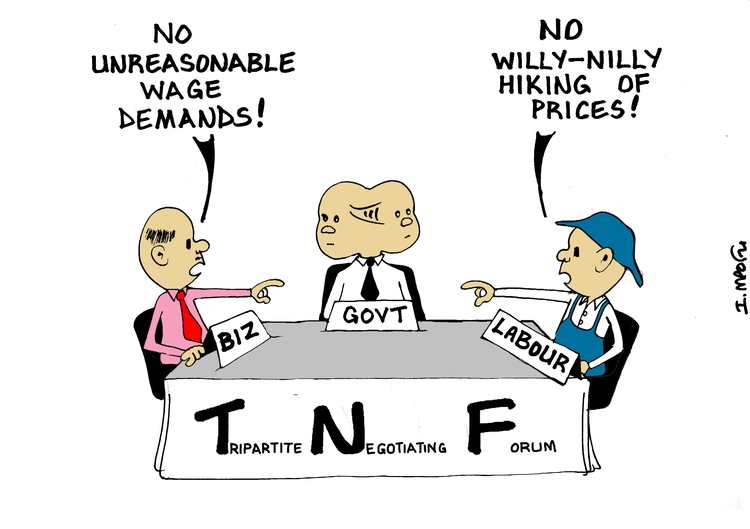Sable Chemicals battles to meet demand
Freedom Mupanedemo and Zvamaida Murwira
The country’s sole ammonia nitrate producer, Sable Chemicals, is struggling to meet the nation’s fertiliser demand, supplying only 25 percent of the 160 000 tonnes that the country needs, while the remaining 75 percent is being imported, an official has said.
Responding to questions from members of the Parliamentary Portfolio Committee on Lands, Agriculture and Rural Resettlement during a tour of the company’s plant last week, Sable Chemicals chief executive officer Mr Bothwell Nyajeka said the firm, which imports most of its raw materials, was facing foreign currency challenges.
He said the company, which decommissioned its electrolysis plant due to viability challenges in 2015, was now heavily relying on importing raw materials and required at least $2,5 million per month to be able to operate at full throttle.
“For us to fully utilise the plant that we are operating at the moment, we need to operate 24/7 and for us to manage that, we need to have enough raw materials,” said Mr Nyajeka.
“The challenge now is that we import ammonia gas, which is our major raw material and we need at least $2,5 million per month, which is not possible at the moment due to liquidity challenges that the country is facing.”
Mr Nyajeka said the company was only receiving $1 million per month from the Reserve Bank of Zimbabwe to import ammonium gas, a development that was forcing them to reduce production. He said when operating at full throttle with all the raw materials available, Sable Chemicals had the capacity to produce 300 tonnes of ammonium nitrate fertiliser per day.
“Foreign currency is a major setback, but we would like to thank Government for the effort in trying to avail it,” said Mr Nyajeka.
“Last year, we managed to produce 36 000 tonnes with the money we got from the RBZ, which was only about 25 percent of the national demand tonnage of 160 000.”
Mr Nyajeka said the company was operating with 200 permanent employees and 100 contract workers. Sable Chemicals, he said, had the capacity to produce 240 000 tonnes of fertiliser per annum, but was forced to lay off over 250 employees in 2015, when they decommissioned the electrolysis plant.
“It’s no longer viable to run the electrolysis plant because of the amount of money required to run it. Because of the nature of the plant, it needs at least 100 megawatts to run, so the amount of power that is needed is just too much and requires a lot of money,” said Mr Nyajeka.
Mr Nyajeka said importing raw materials was proving to be more economic and the company was working on a long-term plan of expanding the acid plant and having more tankers to import and store more raw materials.
“In our long-term plan, we intend to expand and operate the two ammonium and acid plants, as well as constructing more tankers so that we can store more ammonium gas. For every one tonne of ammonium we import, we are able to produce two tonnes of ammonium nitrate,” he said.
The portfolio committee’s chairperson, Cde Justice Wadyajena, said the company’s concerns will be tabled before Parliament.
“You know, agriculture is the major pillar of our economy and Sable Chemicals becomes a strategic company. This familiarisation tour has opened our minds and we will table what we have gathered here before Parliament for a way forward,” he said.







Comments